Frizzy hair can be incredibly frustrating. One day your hair feels soft and manageable, and the next—it turns into a puffball of untamed strands. Whether it’s due to humidity, heat styling, or naturally dry hair, frizz is a common issue many people deal with. The good news? It’s manageable—and the solution could be as simple as using the right hair oil. Hair oils are a natural, effective way to tame frizz, nourish your strands, and restore shine. In this blog, we’ll explore five powerful hair oils that actually work to control frizz—and why they deserve a spot in your haircare routine.
Why Does Hair Get Frizzy in the First Place?
Frizz happens when the hair’s outer layer (the cuticle) is raised, allowing moisture to pass through and swell the hair shaft. The result? Puffy, unruly hair.
Here are some common causes:
- Lack of moisture
- Heat styling damage
- Humid weather
- Harsh shampoos or chemical-laden products
- Chemical treatments
The key to managing frizz lies in sealing the hair cuticle, locking in moisture, and improving overall hair health—and that’s where hair oils come in.
1. Argan Oil – The Liquid Gold for Frizz Control
Argan oil is often called “liquid gold”—and for good reason. Extracted from the kernels of the Moroccan argan tree, this lightweight oil is rich in vitamin E, antioxidants, and essential fatty acids.
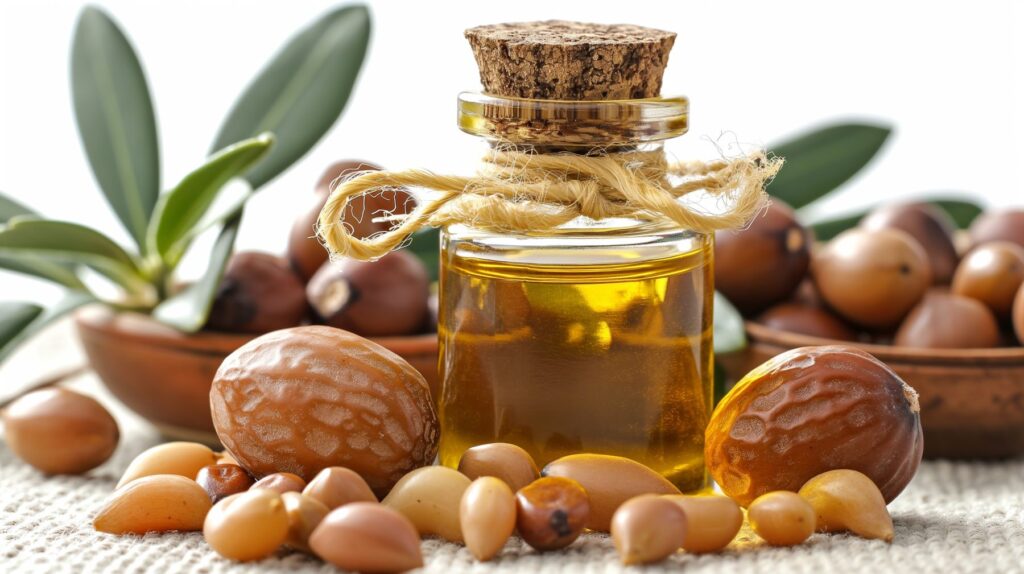
Benefits for Frizzy Hair:
- Smoothens and seals the hair cuticle
- Adds shine without leaving hair greasy
- Protects against heat and environmental damage
- Hydrates dry ends effectively
How to Use:
Apply 2–3 drops of argan oil to damp or dry hair, focusing on the ends. It works wonderfully as a leave-in serum before styling.
2. Coconut Oil – Deep Moisture for Dry, Frizzy Hair
A staple in Indian households, coconut oil is more than just tradition—it’s backed by science. This oil penetrates the hair shaft deeply, reducing protein loss and locking in moisture.
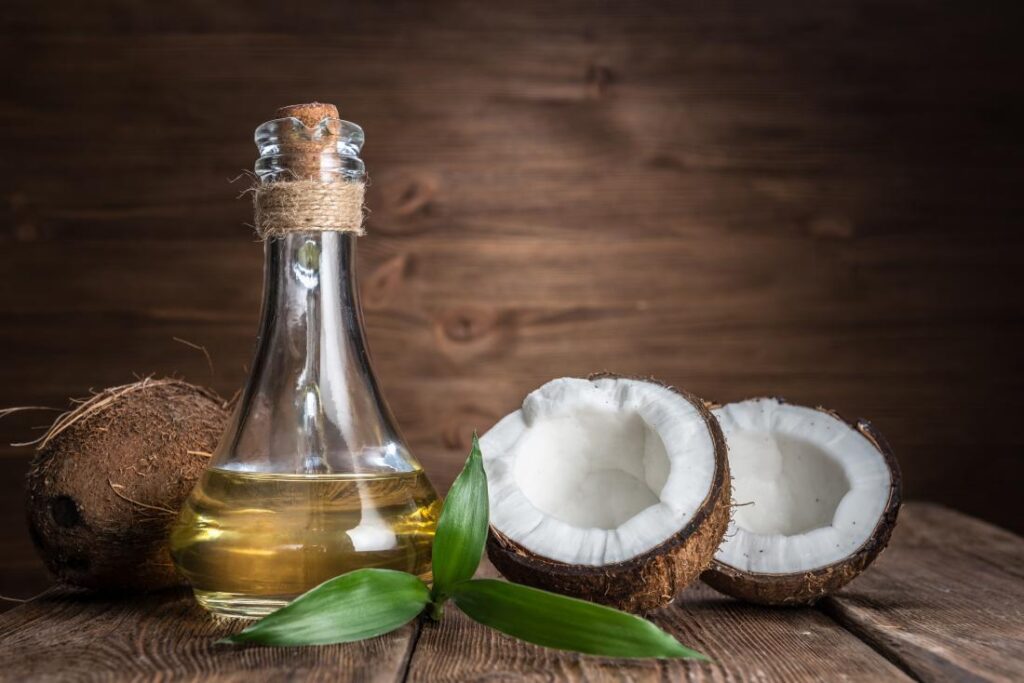
Benefits for Frizzy Hair:
- Reduces dryness and hair breakage
- Smooths the cuticle and seals in moisture
- Contains lauric acid with antimicrobial properties
- Strengthens hair from within
How to Use:
Warm a few tablespoons of virgin coconut oil, massage it into your scalp and hair, and leave it on for at least 30 minutes or overnight. Rinse with shampoo.
3. Almond Oil – Softens and Nourishes Hair
Almond oil is packed with magnesium, omega-3 fatty acids, and vitamin D—all essential for healthy, frizz-free hair. It’s especially effective for dry and coarse hair types.
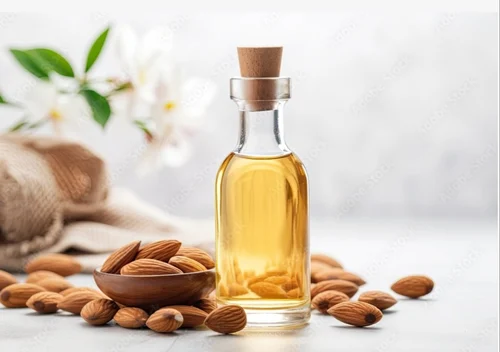
Benefits for Frizzy Hair:
- Adds softness and shine
- Prevents moisture loss
- Reduces scalp inflammation and flakiness
- Helps repair damaged strands
How to Use:
Apply almond oil from roots to tips, cover your hair with a warm towel, and leave it on for 30–60 minutes before rinsing.
4. Rosemary Oil – The Herbal Hero for Hair & Frizz
Rosemary oil is trending for hair growth—but it’s also great for controlling frizz. Rich in antioxidants and anti-inflammatory compounds, rosemary oil improves scalp health and enhances hair texture.
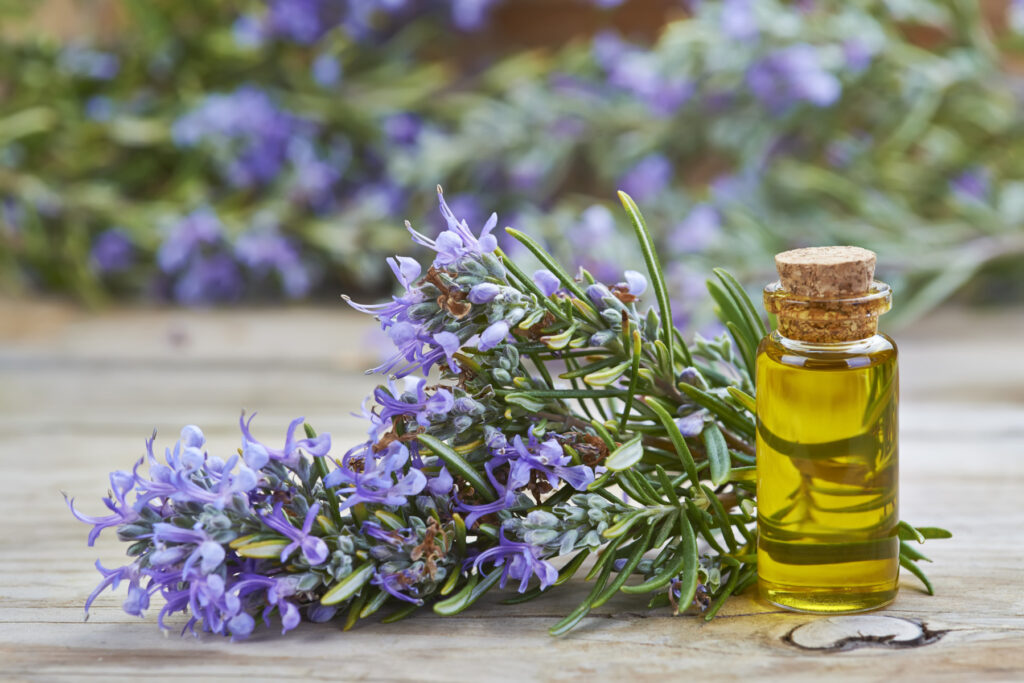
Benefits for Frizzy Hair:
- Stimulates blood flow to promote stronger, healthier hair
- Balances scalp’s natural oil production
- Reduces dryness and improves texture
- Adds shine and smoothness (when blended with carrier oils)
Important:
Never apply rosemary oil directly. It must be diluted with a carrier oil like coconut, argan, or almond oil.
How to Use:
Mix 4–5 drops of rosemary essential oil with 2 tablespoons of a carrier oil. Apply to scalp and hair, leave it on for 30 minutes, then rinse with a mild shampoo.
5. Jojoba Oil – Lightweight Hydration That Mimics Sebum
Technically a wax ester, jojoba oil mimics the natural oils produced by your scalp, making it perfect for oily roots and dry ends. It’s especially helpful for fine or low-porosity hair.
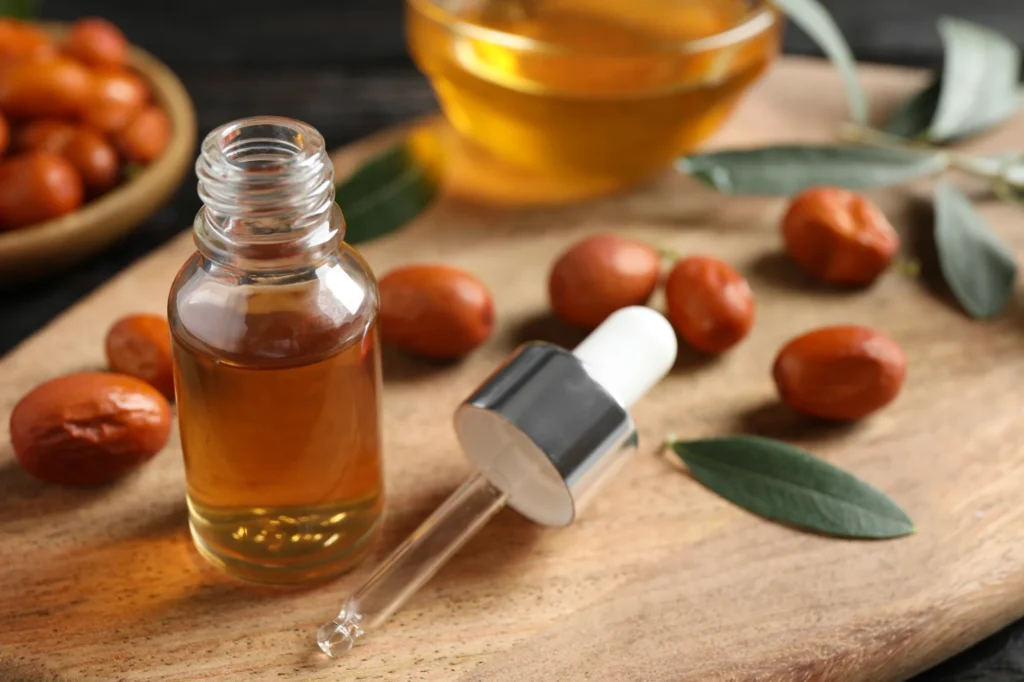
Benefits for Frizzy Hair:
- Hydrates without making hair greasy
- Adds softness and seals in moisture
- Balances scalp’s oil production
- Ideal for sensitive or easily weighed-down hair
How to Use:
Apply a few drops to towel-dried hair as a leave-in serum or blend with other oils for an overnight hair mask.
Expert Tips to Use Hair Oils for frizzy hair Effectively
Even the best hair oil won’t work its magic if used the wrong way. Here’s how to make the most of your frizz-fighting oils:
Do:
- Slightly warm the oil before applying for better absorption.
- Focus on mid-lengths to ends, where frizz is most common.
- Use a hot towel wrap to help the oil penetrate deeper.
- Wash off with a sulfate-free, gentle shampoo.
TIP: For hot towel therapy, coconut oil is one of the best choices due to its deep penetration and intense moisturizing properties. It nourishes dry, frizzy hair and helps repair damage from within. You can also mix it with almond oil or a few drops of rosemary oil for added shine, scalp stimulation, and long-lasting smoothness.
Don’t:
- Overuse heavy oils like coconut oil on fine hair (they can weigh it down).
- Apply essential oils like rosemary directly to scalp or hair without dilution.
- Leave oil in for more than 24 hours—it can attract dirt and clog pores.
Frequently Asked Questions (FAQs)
1. Which hair oil is best for frizzy hair?
Ans: Argan oil is often considered the best oil for frizzy hair due to its lightweight texture and rich vitamin E content. It smoothens the hair cuticle without weighing it down. Other effective oils include coconut oil for deep moisture, and rosemary oil for improving texture and promoting overall hair health.
2. Can I use hair oil every day for frizz?
Ans: You can use lightweight oils like argan or jojoba oil daily in small amounts as a leave-in serum. Heavier oils like coconut or almond should be used 2–3 times a week to avoid buildup.
3. How long should I leave oil in my hair for best results?
Ans: For deep treatments, leave the oil on for 30 minutes to overnight before washing it out. If using it as a leave-in, apply just a few drops to damp or dry hair and don’t rinse.
4. Can rosemary oil help with frizzy hair?
Ans: Yes, rosemary oil helps reduce frizz by balancing the scalp’s natural oils, improving blood circulation, and enhancing hair texture. Always mix it with a carrier oil like coconut or almond oil before applying.
5. Will oiling make my hair greasy or heavy?
Ans: It depends on the type and quantity of oil used. Lightweight oils like argan and jojoba won’t leave your hair greasy if used sparingly. Avoid applying heavy oils near the scalp unless doing a full pre-shampoo treatment.
6. Are these hair oils suitable for color-treated or chemically treated hair?
Ans: Yes, oils like argan, almond, and jojoba are safe and beneficial for color-treated hair. Avoid mineral oils or synthetic oils. Always do a patch test before trying a new product.
Final Thoughts
Frizzy hair isn’t a life sentence—it’s just your hair asking for a little extra care. With the right hair oils for frizzy hair and a consistent routine, you can tame frizz, hydrate your strands, and enjoy hair that looks smooth and feels soft.
Whether you’re using argan for sleekness, coconut for deep repair, or rosemary for herbal nourishment, the right oil can make all the difference.
Your journey to frizz-free, glossy hair starts with just a few drops of the right oil.
Has a favorite oil that’s helped tame your frizz? Share your go-to tips in the comments





Woah! I’m really loving the template/theme of this website. It’s simple, yet effective. A lot of times it’s tough to get that “perfect balance” between usability and visual appeal. I must say you’ve done a awesome job with this. Additionally, the blog loads extremely fast for me on Opera. Exceptional Blog!
Thanks a ton! I tried to keep the design simple but user-friendly, so it makes me happy to hear you noticed that. Glad to know it loads fast on Opera too!
Hello! This is kind of off topic but I need some help from an established blog. Is it very hard to set up your own blog? I’m not very techincal but I can figure things out pretty fast. I’m thinking about creating my own but I’m not sure where to begin. Do you have any points or suggestions? With thanks
Thanks for your question! Starting a blog isn’t too hard these days. Platforms like WordPress and Blogger make it beginner-friendly, even if you’re not very technical. If you can figure things out quickly, you’ll do just fine—just start small and learn as you go.